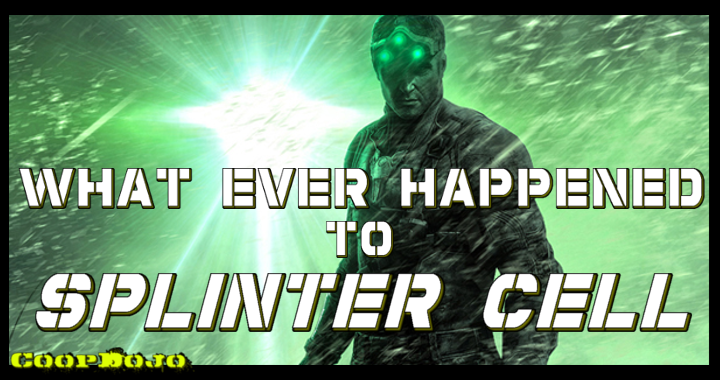
What Ever Happened to Splinter Cell?
Ubisoft has a hit with The Division, a game that is much more fun than we anticipated it would be. We aren’t (yet) willing to say this open world RPG shooter displaces Destiny, we do think this may be the best cooperative game we see this year (prove us wrong, Cuphead!). The Division is a brilliant next move for Ubisoft, who seems to be struggling with some of its franchises. Specifically, its franchises seem to be getting worse with each subsequent release; Far Cry 4 was good but not as good as Far Cry 3 (though the coop was excellent), Assassin’s Creed has been sliding down hill ever since Black Flag, and Splinter Cell seems to have disappeared entirely. That last one is particularly confusing to us: What ever happened to Splinter Cell?

The finale of the original Splinter Cell is among the best final levels we’ve ever played
Splinter Cell is a great franchise with a memorable hero (usually voiced by the unbeatable Michael Ironside). Splinter Cell wasn’t the first stealth infiltration title (apparently that was Tenchu!) and it appeared just after megahits like Metal Gear Solid and Hitman. To us, though Splinter Cell had a more relatable hero than Hitman and a more straightforward adventure than some of Solid Snake’s stories. Sure, you moved like a tank carrying a rucksack full of bricks, but this was all part of the gameplay and the pleasure of planning out a sneak attack and Ironside’s excellent voice acting more than compensated for it. The games reached a crescendo with Chaos Theory, which provided a terrific story, excellent gameplay, and a decent enough cooperative adventure. Chaos Theory is one of those titles that still holds up today.
And then the titles started to decline. Splinter Cell: Double Agent introduced moral ambiguity and branching gameplay, which some players enjoyed but many did not enjoy in this particular series. Splinter Cell: Conviction further increased the cooperative offerings and introduced the mark-and-execute ability that let you target enemy soldiers and execute them from a distance, a feature that was fun but somewhat undermined the stealth action of the game (and has noticeably not been emulated by other titles). Splinter Cell: Blacklist, the most recent title, was also probably the best since Chaos Theory, but it also felt like just a rehash of games that had come before. Since them, Sam Fisher seems to have gone off the grid.

The Division lifted a lot from Sam Fisher like free floating text display or core gameplay focused on violent jingoism
Ultimately, what happened to Splinter Cell is what’s happening to a lot of titles at Ubisoft, where many franchises seem to be losing their steam. The initial game in the franchise is successful despite some gamplay limitations, the immediate sequels improve dramatically and provide a terrific experience, and then the series plateaus and fails to evolve beyond that. The titles become good but not essential; difficult to criticize but hard to recommend. Rainbow Six and Assassin’s Creed franchises are already well down this path and Far Cry is not far behind. These games are well-designed, beautiful, and fun enough to play, but still they become hard to recommend over other competing games. Why play this sequel when there are so many more original and vital experiences to be found in gaming today?
So perhaps Sam Fisher has been edged out by The Division, an open-world cooperative experience that we’re enjoying much more than we thought we would. Perhaps this is where other Ubisoft titles are headed as well, edged out by newer titles that provide more engaging and novel experiences. Perhaps that’s fitting enough; if Ubisoft can’t figure how to make it’s franchises more relevant, at least they can take part in their becoming obsolete.

Bad guys, invest in hallways larger than 4 feet with light bulbs and you’ll eliminate like half of the Third Echelon’s playbook


